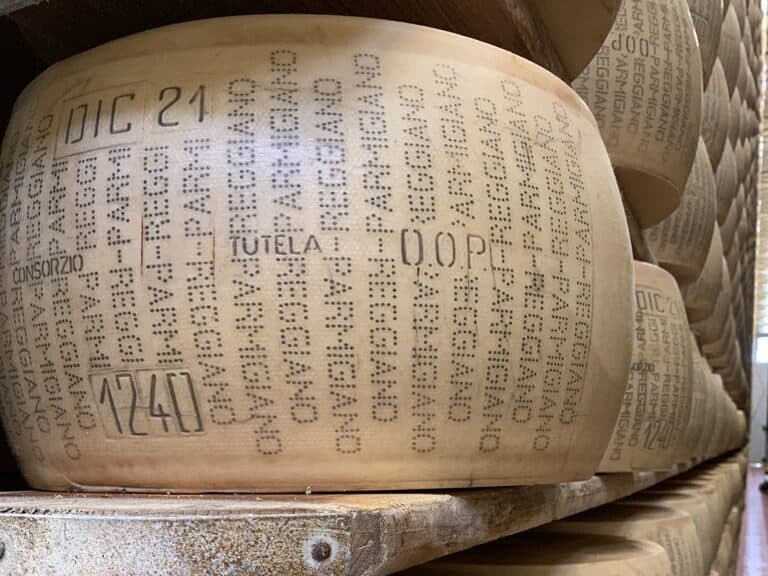
In the ongoing battle against knockoffs, the Parmigiano-Reggiano Consortium (PRC) has a new “chip” up its sleeve. Makers of the iconic Italian cheese are now embedding their 90-pound wheels with edible microchips in an effort to cut down on counterfeit cheese.
The Wall Street Journal reports that these new microchips are equipped with blockchain-backed tracking and real-time inventory control, offering a formidable defense against fraudsters. These micro-transponders, as small as a grain of sand, are fitted onto the cheese’s food-safe casein label. When scanned with a laser reader, it gives a unique serial ID that verifies the authenticity of the wheel.
The newly introduced silicon chips by Chicago-based p-Chip are an advanced technological solution. They not only trace the cheese back to its milk origin but have been rigorously tested for over a year on more than 100,000 Parmigiano Reggiano wheels to ensure they can withstand the cheese’s aging process. In the past, the PRC has given each wheel a unique QR code, but those were easily copied and degraded during the aging process—which usually varies from one to three years.
“We keep fighting with new methods,” Alberto Pecorari, from the PRC, told the Wall Street Journal. “We won’t give up.”
And for people worried about ingesting these microchips—which is totally possible—p-Chip Chief Technology Officer Bill Eibon told the Wall Street Journal he has eaten a chip to demonstrate how safe it is. He also notes that the chips cannot be read remotely or once ingested, so there is no way for them to track people.
“We don’t want to be known as the company accused of tracking people,” Eibon told the Wall Street Journal. “I ate one of the chips and nobody is tracking me, except my wife, and she uses a different method.”
It’s not just the PRC that has an issue with forgery. With over 3,500 EU products enjoying protected status—ranging from Greek feta to French Champagne—ensuring food authenticity has become a major business. A 2020 EU study estimated the market’s worth at an eye-watering $87 billion. The race to preserve and protect has led to the adoption of QR codes, hologram labels, and even DNA fingerprinting of milk bacteria for cheese identification.
Microchipped cheese is the latest development in Europe’s ongoing battle to protect its regional products. Last year, the consortium successfully blocked Kraft Heinz from registering the “Kraft parmesan cheese” trademark in Ecuador. However, earlier this year in the US, a Virginia appeals court ruled that the term “gruyere” is generic and cannot be protected with a certification mark.



